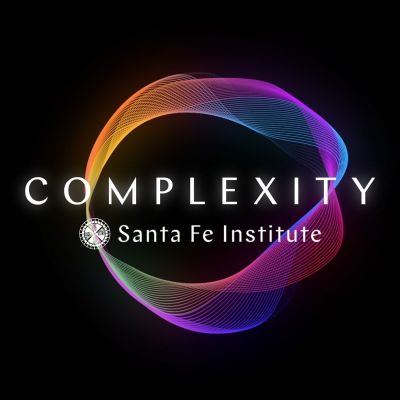Are there universal laws of life and can we find them? Is there a physics of society, of ecology, of evolution? Join us for six episodes of thought-provoking insights on the physics of life and its profound implications on our understanding of the universe. In this season of the Santa Fe Institute’s Complexity podcast’s relaunch, we talk to researchers who have been exploring these questions and more through the lens of complexity science. Subscribe now and be part of the exploration!
https://complexity.simplecast.com
episode 12: Matthew Jackson on Social & Economic Networks
It may be a cliché, but it’s a timeless truth regardless: who you know matters. The connectedness of actors in a network tells us not just who wields the power in societies and markets, but also how new information spreads through a community and how resilient economic systems are to major shocks. One of the pillars of a complex systems understanding is the network science that reveals how structural differences lead to (or help counter) inequality and why a good idea alone can’t change the world. As human beings, who we are is shaped by those around us — not just our relationships to them but their relationships to one another. And the topology of human networks governs everything from the diffusion of fake news to cascading bank failures to the popularity of social influencers and their habits to the potency of economic interventions. To learn about your place amidst the networks of your life is to awaken to the hidden seams of human culture and the flows of energy that organize our world.
This week’s guest is SFI External Professor Matthew O. Jackson, William D. Eberle Professor of Economics at Stanford University and senior fellow of CIFAR, also a Member of the National Academy of Sciences, and a Fellow of the American Academy of Arts and Sciences. In this episode, we discuss key insights from his book, The Human Network: How Your Social Position Determines Your Power, Beliefs, and Behaviors.
For transcripts, show notes, research links, and more, please visit complexity.simplecast.com.
And note that we’re taking a short break over the winter holiday. COMPLEXITY will be back with new episodes in January 2020.
If you enjoy this show, please help us reach a wider audience by leaving a review at Apple Podcasts, or by telling your friends on social media…after this episode’s discussion, we know you’ll understand how crucial this can be. Thank you for listening!
Visit our website for more information or to support our science and communication efforts.
Join our Facebook discussion group to meet like minds and talk about each episode.
Matthew Jackson’s Stanford Homepage.
WSJ reviews The Human Network.
Jackson’s Coursera MOOCs on Game Theory I, Game Theory II, and Social & Economic Networks.
Podcast Theme Music by Mitch Mignano.
Follow us on social media:
Twitter • YouTube • Facebook • Instagram • LinkedIn
